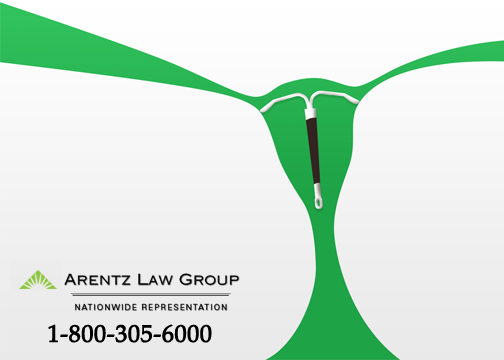Uterine Perforation Caused by Mirena IUD

If you have suffered from uterine perforation due to the use of Mirena IUD, you may be entitled to compensation. Contact a defective products lawyer from the Arentz Law Group for your free initial consultation immediately by filling out the contact form, or by calling 1-800-305-6000.
Mirena IUD, the intrauterine contraceptive device made by Bayer, has been on the market for nearly 14 years. During that time millions of women have opted for this form of birth control primarily due to the ease of use. A one-time implantation will allow a slow release of hormones for up to five years. No longer do women need to worry about taking a pill each day to make sure that they will not have an unwanted pregnancy. The device works so well, that it is able to boast that over 99% of the users have not become pregnant. Unfortunately, what happens too often is that women suffer some physical effects that are caused by the device itself.
Uterine Perforation
A trained healthcare professional must implant the IUD inside the patient’s uterus. With special tools the device is supposed to slide into place, and after the initial few minutes of pain (which are described as one long and painful cramp), the patient should be able to go about their life as though the device was not there, and without the risk of pregnancy. However, there are some cases that the device does not implant properly. While the risk of perforation is relatively low, it does happen in enough women that the attorneys at Arentz Law feel Bayer was knowledgeable about the design flaw, yet still marketed the product.
The device is designed in a T shape. The two arms are made to be flexible and easily slide through the cervix and into the uterus. When the device is implanted improperly, one of those arms can puncture or tear through the wall of the uterus (this is more common in women who are nursing or who have recently given birth, as the muscles tissue in the uterus is thinner and weaker). When this happens, the device should be extracted immediately, however, it sometimes is unknown that perforation has occurred (only 8.5% of tears were detected at the time of insertion). When untreated the area can become infected, and make extraction difficult. In these cases, surgery is often required to remove the device.
Perforation at implantation is the most common; however, there are cases where the device has migrated out of the uterus. This happens when the wall of the uterus is puncture, and the device starts to work its way through the hole created. Left untreated the wall of the uterus may start to deteriorate, and other organs can be affected from the migrating device.
Contact Arentz Law
Uterine perforation from Mirena IUD is common enough to be a concern for the patients who are seeking a long term reversible contraceptive. If you have been injured through the use of Mirena IUD, schedule your free initial consultation with an attorney from Arentz Law Group P.C. immediately. Highly trained lawyers are ready to discuss your case. Arentz attorneys can work with clients from all 50 states.
